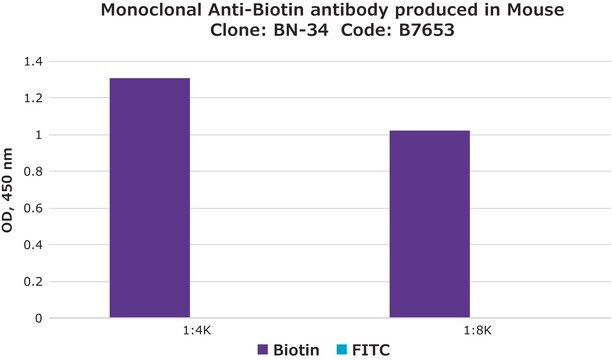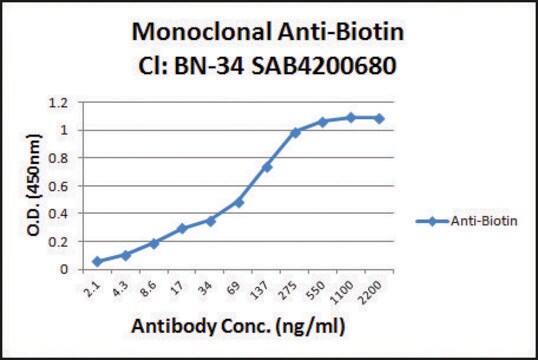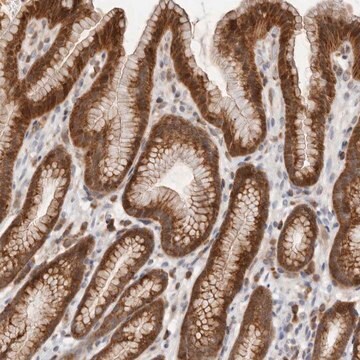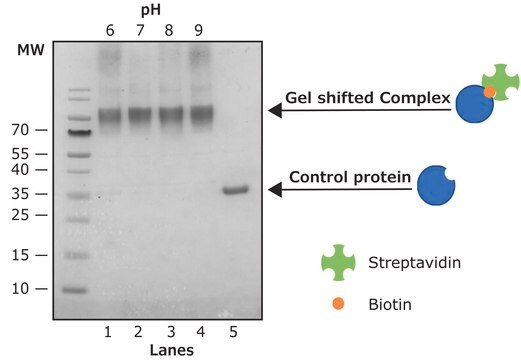A1559
Monoclonal Anti-Biotin–Agarose antibody produced in mouse
clone BN-34, purified immunoglobulin, PBS suspension
Synonym(s):
Monoclonal Anti-Biotin
About This Item
Recommended Products
biological source
mouse
recombinant
expressed in mouse cell line
conjugate
agarose conjugate
antibody form
purified immunoglobulin
antibody product type
primary antibodies
clone
BN-34, monoclonal
form
PBS suspension
extent of labeling
2 mg antibody per mL resin
technique(s)
ELISA: suitable
immunohistochemistry: suitable
immunoprecipitation (IP): suitable
western blot: suitable
isotype
IgG1
capacity
0.15-0.3 μmol/mL, agarose binding capacity (biotin-ligand conjugate)
application(s)
research pathology
shipped in
wet ice
storage temp.
2-8°C
target post-translational modification
unmodified
Looking for similar products? Visit Product Comparison Guide
Related Categories
General description
Immunogen
Application
Chromatin immunoprecipitation (1 paper)
- pulldown assay
- coimmunoprecipitation
- chromatin immunoprecipitation
- purification of biotinylated compounds and biotin-containing compounds
In some applications, localization of biotinylated probes with avidin produces high background levels. Anti-biotin reagents may be substituted for avidin to decrease non-specific binding.
In some applications, localization of biotinylated probes with avidin produces high background levels. Anti-biotin reagents may be substituted for avidin to decrease non-specific binding.
Physical form
Preparation Note
Other Notes
Disclaimer
Not finding the right product?
Try our Product Selector Tool.
Storage Class Code
10 - Combustible liquids
WGK
WGK 3
Flash Point(F)
Not applicable
Flash Point(C)
Not applicable
Certificates of Analysis (COA)
Search for Certificates of Analysis (COA) by entering the products Lot/Batch Number. Lot and Batch Numbers can be found on a product’s label following the words ‘Lot’ or ‘Batch’.
Already Own This Product?
Find documentation for the products that you have recently purchased in the Document Library.
Related Content
Pull-down assays, reagents, and protocols for investigating in vitro protein-protein interactions using affinity or GST pull-down, tandem affinity purification (TAP), and co-immunoprecipitation methods.
Our team of scientists has experience in all areas of research including Life Science, Material Science, Chemical Synthesis, Chromatography, Analytical and many others.
Contact Technical Service







